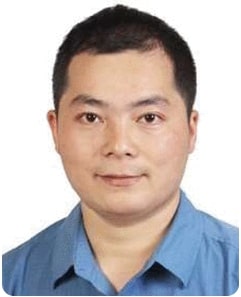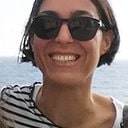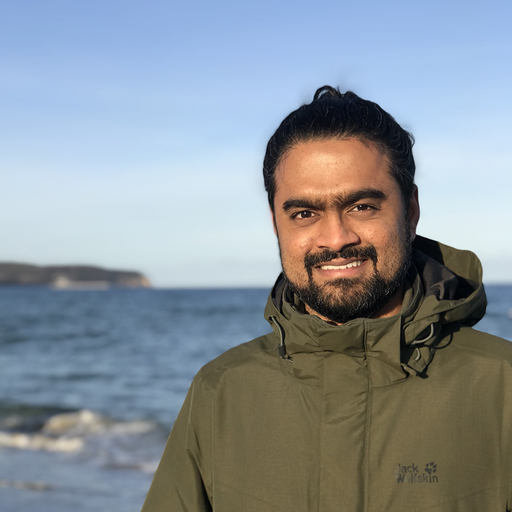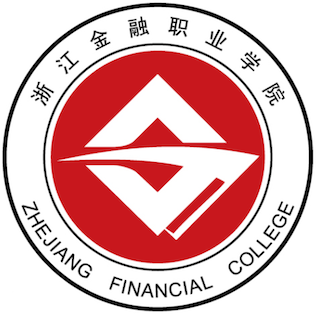SUMAC 2024
6th workshop on analysis, understanding
and promotion of heritage contents
Advances in machine learning, signal processing,
multimodal techniques and human-machine interaction
In conjunction with ACM Multimedia 2024
28 Oct, 2024, Melbourne, Australia (On-Site)
Best Paper Award - "Creating a Dataset for the Detection and Segmentation of Degradation Phenomena in Notre-Dame de Paris" - Laura Willot, Kévin Réby, Adeline Manuel, Dan Vodislav, Valerie Gouet-Brunet, Livio De Luca.
News and Updates
- [19 Dec, 2024] Presentor Slides are now available. Links are provided at the end of the Talk Titles
- [06 Nov, 2024] Best paper award goes to "Creating a Dataset for the Detection and Segmentation of Degradation Phenomena in Notre-Dame de Paris" [ACM DL Link], presented by Laura Willot
- [22 Oct, 2024] Schedule Announced
- [22 Oct, 2024] List of Accepted Papers with their links
- [20 Aug, 2024] Workshop date announced: 28-Oct, 2024.
- [10 Aug, 2024] Camera-ready paper deadline and Author registration deadline is 22-August-2024.
- [10 Aug, 2024] The paper decisions are released on OpenReview.
- [16 July, 2024] Deadline Extended to 12.59 PM, 24 July, 2024 UTC-0
- [24 June, 2024] Keynote Speakers Announced
- [24 June, 2024] Program Comittee Announced
- [17 June, 2024] Important Dates
- [17 June, 2024] Submissions Site Open! ---> Submissions Guidelines.
- [7 May, 2024] Website Launched! </ul> </p>
- Monomodal analysis: image, text, video, 3D, music, sensor data and structured referentials
- Information retrieval for multimedia heritage
- Automated archaeology and heritage data processing
- Multi-modal deep learning and time series analysis for heritage data
- Heritage modeling, visualization, and virtualization
- Smart digitization and reconstruction of heritage data
- Open heritage data and bench-marking
- Analysis, archaeometry of artifacts
- Diagnosis and monitoring for restoration and preventive conservation
- Geosciences / Geomatics for cultural heritage
- Education
- Smart and sustainable tourism
- Urban planning
- Digital Twins
- Paper submission:
July 1912.59 PM, July 24, 2024 UTC-0 - Author acceptance notification: August 5, 2024
- Camera-Ready: August 19, 2024
- Workshop date: TBA (28 Oct - 1 Nov, 2024)
- New profiles created without an institutional email will go through a moderation process that can take up to two weeks.
- New profiles created with an institutional email will be activated automatically.
- Personalized Generative Storytelling with AI-Visual Illustrations for the Promotion of Knowledge in Cultural Heritage Tourism - Andrea Ferracani, Marco Bertini, Pietro Pala, Gabriele Nannotti, Filippo Principi, Giuseppe Becchi [ACM DL Link]
- Creating a Dataset for the Detection and Segmentation of Degradation Phenomena in Notre-Dame de Paris - Laura Willot, Kévin Réby, Adeline Manuel, Dan Vodislav, Valerie Gouet-Brunet, Livio De Luca [ACM DL Link]
- Historical Postcards Retrieval through Vision Foundation Models - Anis Amri, Salvatore Tabbone [ACM DL Link]
- Scene Classification on Fine-arts with Style Transfer - Haiting Huang, Mathias Zinnen, Shumei Liu, Andreas Maier, Vincent Christlein [ACM DL Link]
- 4D Geo Modelling from Different Sources at Large Scale - Sander Muenster, Jonas Bruschke, Daniel Dworak, Dávid Komorowicz, Vaibhav Rajan, Dominik Ukolov [ACM DL Link]
- Understanding User Engagement in Museum TikTok Videos by Exploring Multimodal Cues - Chek Zi Yan Jane, John See, Jessica Sze Yin Ho, Lau Pei Mey, Padma Pillai [ACM DL Link]
- Hand Gesture Recognition in Buddhist Art Images: Evaluation of a Keypoint-based Approach - Li Weng [ACM DL Link]
- Sinem Aslan (University of Venice, Italy)
- Jenny Benois-Pineau (Université de Bordeaux/LABRI, France)
- Marin Ferecatu (Cnam, France)
- Martin Langner (Uni. Göttingen, Germany)
- Ziqian Luo (Oracle, USA)
- Prathmesh Madhu (FAU, Germany)
- Stephane Marchand-Maillet (University of Geneva, Switzerland)
- Milind Padalkar (PAVIS-IIT, Italy)
- Giulio Poggi (Cultural Heritage Technologies, IIT, Italy)
- Armanda Rodrigues (NOVA LINCS, NOVA Univ. Lisbon, Portugal)
- Edgar Román (ITAM, Mexico)
- Margarita Roos (Fujitsu, France)
- John Samuel (CPE Lyon, France)
- Wen Wang (Zhejiang University, China)
- Jing Zhang (The University of Sydney, Australia)
- Mathias Zinnen (FAU, Germany)
- SUMAC 2023 Website & Proceedings
- SUMAC 2022 Website & Proceedings
- SUMAC 2021 Website & Proceedings
- SUMAC 2020 Website & Proceedings
- SUMAC 2019 Website & Proceedings
Overview
The sixth version of the SUMAC (analySis, Understanding and proMotion of heritAge Contents) workshop, like its predecessors, focuses on analyzing, processing and valorizing all types of data related to cultural heritage, including tangible and intangible heritage. As stated by UNESCO, cultural heritage provides societies with a wealth of resources inherited from the past, created in the present for the benefit of future generations.
Digital heritage data acquired are naturally massive and address a large diversity of monomodal modalities (text, structured referentials, image, video, 3D, music, sensor data). Their processing and promotion put into light several scientific challenges as well as various new use cases that are of topical interest today for the ACM Multimedia community, both for academics and industries. Like in the previous editions, we will strive to value the sharing of knowledge, algorithms and experiments; and also open source software and open data, by encouraging the submission of articles that promote this sharing policy.
Abundant heritage data is available in the most recent years. Older data, that can be called the big data of the past, are mostly locked -- they currently remain largely “hidden” from the public, in galleries, libraries, archives, museums or data producers' infrastructures. Processing heritage data to increase their visibility will act as a game changer and contribute to a large panel of communities, by enabling an outstanding pool of inter-operable data, not only as a service to citizens but also to public or private actors, by challenging the research methods at the crossing of computer science, artificial intelligence and digital humanities.
Call for Papers
The ambition of SUMAC is to bring together researchers and practitioners from different disciplines to share ideas and methods on current trends in the analysis, understanding and promotion of heritage contents. These challenges are reflected in the corresponding sub-fields of machine learning, signal processing, multi-modal techniques and human-machine interaction. We welcome research contributions for the following (but not limited to) topics:
The scope of targeted applications is extensive and includes:
Important dates
Submission guidelines
Submission format All submissions must be original work not under review at any other workshop, conference, or journal. The workshop will accept papers describing completed work (full paper) as well as work in progress (short paper). Two submission formats are accepted: a) 4 pages plus 1-page reference (short paper); or b) 8 pages plus up to 2-page reference (full paper). They must be encoded as PDF using the ACM Article Template of the main conference ACM Multimedia 2024 (https://2024.acmmm.org/regular-papers).
Peer Review and publication in ACM Digital Library Paper submissions must conform with the “double-blind” review policy. All papers will be peer-reviewed by experts in the field, they will receive at least two reviews. Acceptance will be based on relevance to the workshop, scientific novelty, and technical quality. Depending on the number, maturity and topics of the accepted submissions, the work will be presented via oral or poster sessions. The workshop papers will be published in the ACM Digital Library.
Profile Registration Openreview (submissions' portal) requires a profile with OpenReview.
IMP NOTES:Submissions' Site https://openreview.net/group?id=acmmm.org/ACMMM/2024/Workshop/SUMAC
Special Highlights
Best Paper Award - We will present a best paper award, accompanied with a certificate and a trophy, similar to previous editions.
Keynote Speakers

Dr.
Jing Zhang
School of Computer Science, The University of Sydney
Website
Dr. Jing Zhang is currently a Research Fellow at the School of Computer Science, Faculty of Engineering, University of Sydney. His research focuses on computer vision and deep learning, with over 100 CORE A* ranked publications in prestigious journals and conferences such as CVPR, ICCV, NeurIPS, ACM Multimedia, IEEE TPAMI, and IJCV. His work has garnered more than 8,000 citations according to Google Scholar. Dr. Zhang is an Area Chair for ICPR, a Senior Program Committee Member for AAAI and the IJCAI, and a guest editor for a special issue on IEEE Transactions on Big Data. He is also a regular reviewer for several leading journals and conferences. In 2023, he was promoted to IEEE Senior Member and was listed among the World’s Top 2% Scientists by Stanford University in 2022 and 2023. Dr. Zhang's groundbreaking work centers on the ViTAE series of foundation models, marking a significant advancement in vision transformers. These models incorporate convolutional biases to enhance representation capabilities and have reached an impressive 1 billion parameters. The ViTAE-H model achieved a remarkable 91.2% top-1 accuracy, outperforming industry giants like Google and Meta. He also developed ViTPose, a 1 billion-parameter pose estimation model, shows great promise for applications in human and animal behavior analysis. His contributions have significantly impacted various image-related tasks and earned widespread recognition in both academia and industry. His commitment to open-source code on GitHub has fostered collaboration, amassing over 5000 stars.

Dr.
Vera Moitinho de Almeida
Centre for Digital Culture and Innovation, Faculty of Arts and Humanities, University of Porto
Website
Vera Moitinho de Almeida is a senior researcher and coordinator of the Centre of Digital Culture and Innovation (CODA) at the Faculty of Arts & Humanities of the University of Porto (FLUP), a member of CITCEM-UP and INESCC-UC, and an honorary senior research collaborator at LAQU-UAB. She has an unusual interdisciplinary academic background: a PhD (cum laude) from UAB, focusing on technological and functional analysis of archaeological objects using 3D digital models and reverse engineering processes; an MSc in Prehistoric Archaeology (UAB); an interdisciplinary MSc (cum laude) in Multimedia Technologies (FEUP); and a BA in Fine Arts (IPC), with a major in pedagogy, while having attended several courses in distinct fields. Her research expertise consists of three intertwined subjects: 1) 2D/3D digital imaging and visualizations for research and conservation of cultural heritage materials; 2) Computational archaeology; 3) Digital data lifecycle and FAIR principles. She has been actively involved in several international transdisciplinary scientific projects and has published extensively in the field of digital applications to research in archaeology, cultural heritage, and the digital humanities.
Accepted Papers
Schedule (Melbourne local time, 28 Oct)
Keynotes: 40 min talk + 10 min Q&A
Orals: 20 min talk + 5 min Q&A
Posters: 10 min talk + 3 min Q&A
| Time | Title | Presenter | |
|---|---|---|---|
| 09.00 - 09.15 | Welcome and Introduction | SUMAC Chairs | |
| 09.15 - 10.05 | (First Keynote) From Pixels to Preservation - The Power of Large Vision Models in Heritage Content Understanding Slides | Jing Zhang | |
| 10.05 - 10.30 | (Oral) Creating a Dataset for the Detection and Segmentation of Degradation Phenomena in Notre-Dame de Paris Slides | Laura Willot | |
| 10.30 - 11.00 | ACM MM Break | ||
| 11.00 - 11.25 | (Poster) 4D Geo Modelling from Different Sources at Large Scale Slides | Sander Münster | |
| 11.25 - 12.00 | (Oral) Scene Classification on Fine Arts with Style Transfer Slides | Haiting Huang | |
| 12.00 - 12.15 | (Poster) Personalized Generative Storytelling with AI-Visual Illustrations for the Promotion of Knowledge in Cultural Heritage Tourism Slides | Niccolò Biondi | |
| 12.30 - 14.00 | ACM MM Lunch Break | ||
| 14.00 - 14.50 | (Second Keynote) God or the Devil are in the Details Too. Reusing 3D Digital Resources for Cultural Heritage Research | Vera Moitinho de Almeida | |
| 14.50 - 15.15 | (Oral) Hand Gesture Recognition in Buddhist Art Images - Evaluation of a Keypoint-based Approach Slides | Li Weng | |
| 15.30 - 16.00 | ACM MM Break | ||
| 16:00 - 16:15 | (Poster) Understanding User Engagement in Museum TikTok Videos by Exploring Multimodal Cues | John See | |
| 16:15-16:40 | (Oral) Historical Postcards Retrieval through Vision Foundation Models Slides | Anis Amri | |
| 16:40-16:55 | SUMAC Break | ||
| 16:55 - 17:10 | Award Ceremony and Wrap-Up | ||
| 17:10 - 17:30 | All workshops end | ||
Program Committee
|
|
|
Organizers

Valerie Gouet-Brunet
IGN, Gustave Eiffel University, France
Website

Ronak Kosti
Pattern Recognition Lab, FAU, Germany
Website

Li Weng
Zhejiang Financial College, China
Website
Sponsors
Previous Editions


